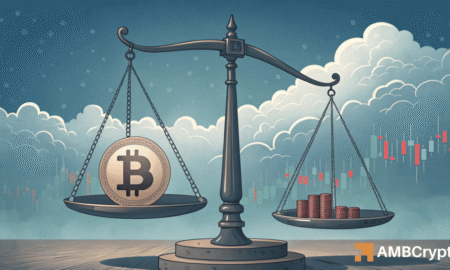The Surge of Crypto Fraud: A Closer Look at MEXC’s Findings
Recent reports from MEXC, a prominent cryptocurrency exchange, indicate a shocking 200% increase in fraudulent trading activities in the first quarter of 2025. As the world witnesses a surge in crypto adoption, especially in emerging markets, instances of fraud have escalated. MEXC’s findings reveal over 80,000 coordinated fraud attempts linked to more than 3,000 syndicates, employing tactics like market manipulation and wash trading. This alarming trend has raised significant concerns, particularly in regions like India and Indonesia, where low financial literacy exacerbates vulnerability to scams.
India and Indonesia: The Hotbeds of Crypto Fraud
The data casts a spotlight on India as the epicenter of this fraudulent wave, with approximately 27,000 suspicious accounts flagged. Following closely is Indonesia, which recorded a staggering 1,303% increase in suspicious behavior from the previous quarter. This alarming growth indicates a consistent pattern of deceitful activities operating within these regions. MEXC’s COO, Tracy Jin, highlighted that 2025 is witnessing a shift from DeFi exploits to socially engineered market manipulation. She emphasized the importance of user education and protective measures, particularly for young investors who may be more easily influenced by misleading information.
The Underlying Causes of Increased Fraud
The dramatic rise in crypto fraud can be primarily attributed to a lack of financial literacy among users, especially in emerging markets. As more individuals in countries like India adopt cryptocurrency, the gap between technology usage and financial understanding widens. A 2025 report from the National Centre for Financial Education indicated that merely 27% of Indian adults possess basic financial literacy—significantly lower than the global average of 42%. Among millennials, this gap is even more pronounced, with only 19% meeting essential literacy benchmarks. This disconnect not only leaves individuals vulnerable to scams but also jeopardizes their faith in the digital asset ecosystem.
A Historical Perspective on Crypto Fraud
The increase in fraudulent activities on MEXC is not an isolated incident. Previous quarters have shown similar patterns of fraud targeting users from various regions, including the CIS and Vietnam, highlighting the cyclical and regional nature of these scams. Even in developed countries like the United States, the struggle against crypto crime persists. Regulatory shifts have not fully curtailed fraudulent practices, as evidenced by recent charges against Unicoin and its executives for misleading investors. This global threat underscores the need for enhanced oversight and more comprehensive investor education.
The Role of Education in Combating Fraud
User education emerges as a critical factor in combating the rise of crypto fraud. MEXC’s COO stressed that young investors, who are especially susceptible to deceptive narratives, require proactive protection and informed guidance. Educational initiatives focusing on financial literacy can empower users to distinguish between legitimate trading opportunities and fraudulent schemes. By fostering a more informed investor base, the crypto industry can help mitigate the risks associated with scams.
A Call to Action for Investors and Regulators
As fraud continues to be a significant challenge in the cryptocurrency landscape, both investors and regulators must take proactive steps. For investors, staying informed and enhancing financial literacy can serve as a first line of defense against fraud. Simultaneously, regulators need to strengthen their oversight mechanisms and develop policies that encourage transparency within the crypto ecosystem. By working collaboratively, stakeholders can create a safer environment for cryptocurrency trading and foster trust in digital assets.
The findings from MEXC serve as a wake-up call for the crypto community. As scams proliferate, particularly in emerging markets, the onus lies on both investors and regulatory bodies to take action. By addressing the underlying issues of financial literacy and enhancing protective measures, the industry can pave the way for a more secure and trustworthy future in cryptocurrency trading.
















